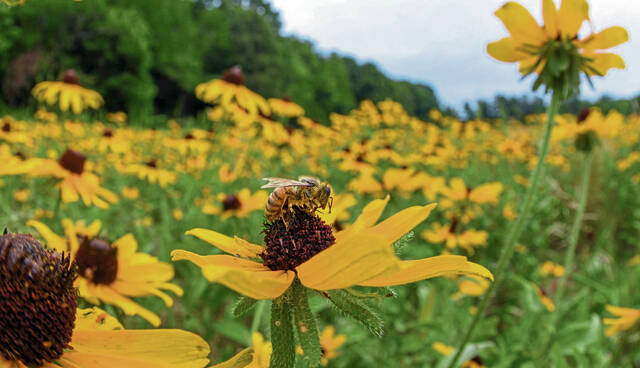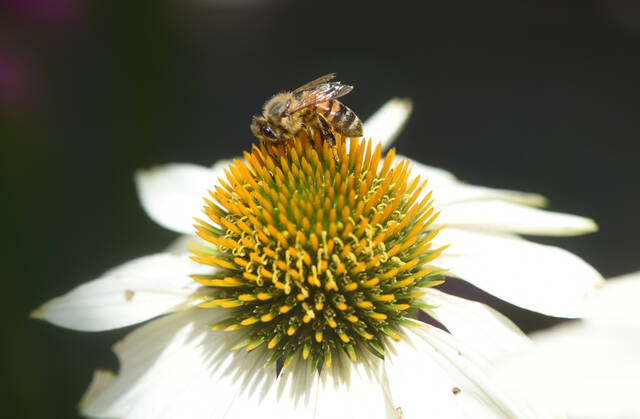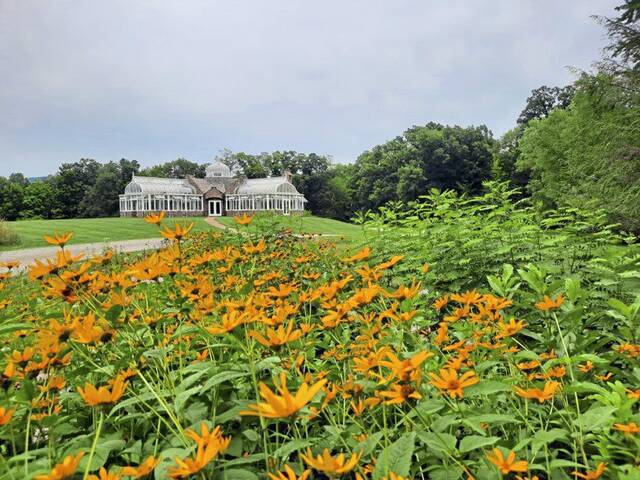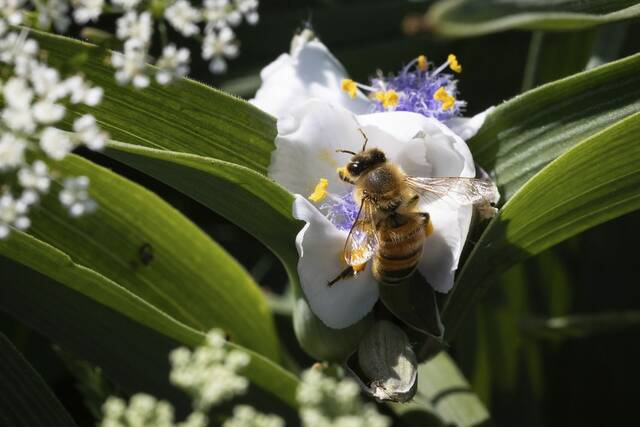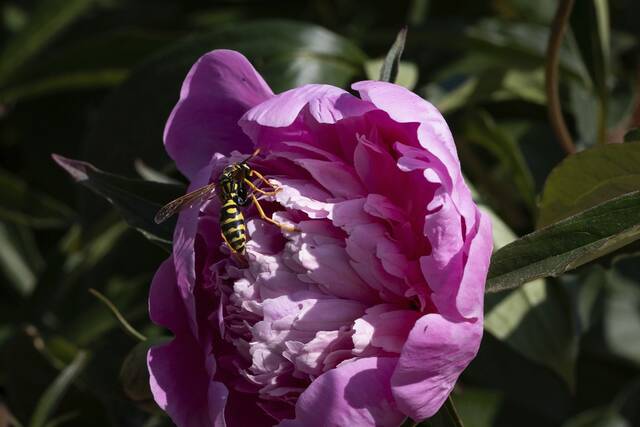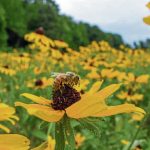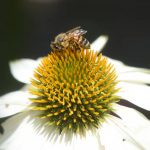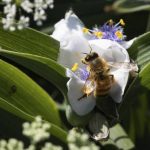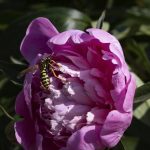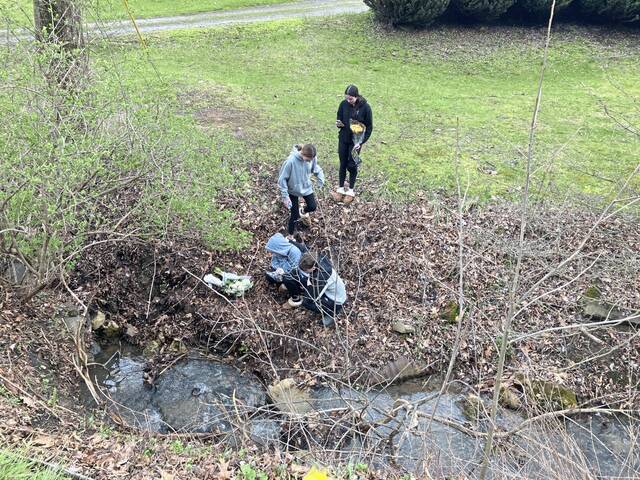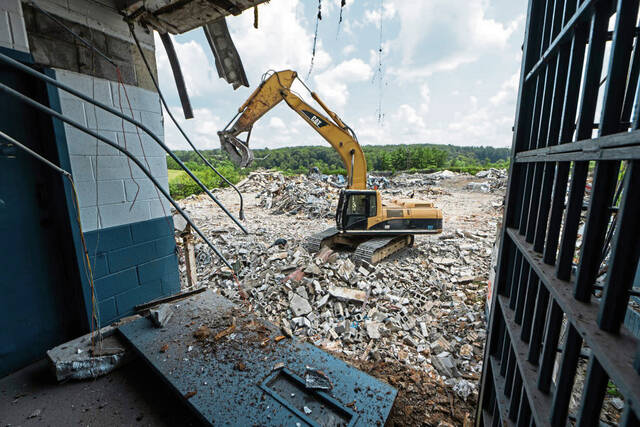Penn State Extension Master Gardener Deb Christopher wants people to learn what to feed their local monarch butterflies.
“Once you know what’s good for the monarchs, you know what’s good for most of the other pollinators,” she said.
Christopher is part of the Westmoreland Pollinator Partners, a consortium of 26 nonprofit organizations, schools, community gardens and individual members dedicated to promoting, protecting and preserving pollinating animals and their habitats.
Christopher and fellow master gardener Patti Schildkamp gave a presentation recently at the Murrysville Community Library on the variety of ways to attract pollinators to backyards and gardens.
In their partner gardens and in general, members of the group advocate for planting native flora that pollinators depend on, as well as host plants for caterpillars.
Just a few pollinator-friendly suggestions include mountain mint, rattlesnake master, purple coneflower, asters and goldenrod. The Gardenia.net gardening website recommends Pennsylvania residents plant Eastern redbuds, field thistle, joe-pye weed, wild lupine, bee balm or wild bergamot.
Some plants can attract specific types of pollinators. Eastern blacktail butterflies, for example, are attracted to items such as fennel or dill, according to Schildkamp, as well as cherry and other deciduous trees.
Butterflies in particular are on Westmoreland Pollinator Partners members’ minds, Schildkamp said.
In partnership with the “Westmoreland 250” initiative celebrating the county’s 250th anniversary, members will undertake a project to try and boost the local population of monarch butterflies, which was recently added to the threatened/endangered species list by the International Union for the Conservation of Nature.
“Our aspiration is to have 250 monarch way stations in Westmoreland County by the end of the year,” Schildkamp said.
With 57 stations already in existence, that will mean creating 193 more. Way stations, which are certified by the nonprofit Monarch Watch, provide milkweed for monarch caterpillars to eat, along with nectaring, blooming perennials and annuals to feed adults in summer and fall. Schildkamp said officials from power company FirstEnergy have agreed to help fund the additional way stations.
Westmoreland Pollinator Partners also will host a “Pennsylvania Pollinator Photo Challenge,” sponsored by the Brandywine Conservancy’s Penguin Court. Residents can submit up to three photos of local pollinators in both the adult and youth categories, and the winners will be announced at the “Monarchs, Milkweed and More” event, set for Aug. 27 at the Southern Alleghenies Museum of Art in Ligonier. The winning photos will be printed and framed on display at the museum for several weeks.
At the Powdermill Nature Reserve in Rector, a Westmoreland Pollinator Partners garden has greeted visitors for more than a decade.
“The best part about our pollinator garden is it’s right in the middle of our parking lot,” said Powdermill Entomologist Andrea Kautz. “When visitors come, they see a bunch of native plants and a haze of butterflies and bees over the garden right as they arrive.”
The Westmoreland Pollinator Partners added two new partner gardens recently, along the West Penn Trail and outside the Delmont Public Library.
“Soon we’ll have Westmoreland Pollinator Partners members gardens in all regions of Westmoreland County,” Schildkamp said.
For more about the group, see Facebook.com/WestmorelandPollinatorPartners.



